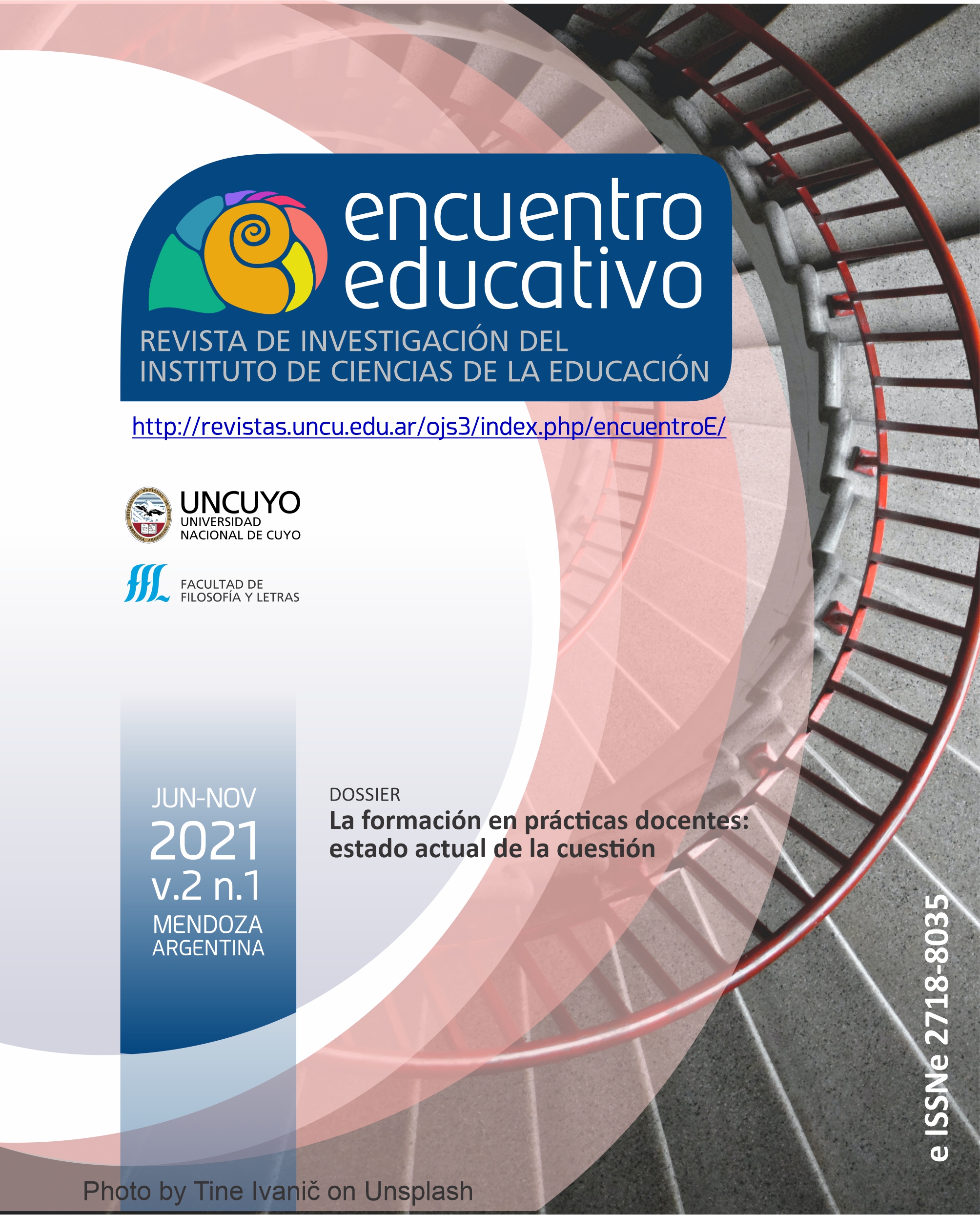Miradas críticas a la apropiación de la práctica reflexiva en la formación docente. Una revisión de literatura
Palabras clave:
práctica reflexica, formación docente, práctica docente, formación inicial, reflexiónResumen
En los últimos 30 años se ha venido posicionando la perspectiva hermenéutica reflexiva como la mejor alternativa para la formación docente. Esto ha sido posible gracias al desarrollo de las ideas de la práctica reflexiva propuestas en su momento por Donald Schön. Es particularmente difícil encontrar posturas que interroguen estos postulados y nos adviertan de las precauciones que es necesario tomar cuando la queremos implementar. De esto se trata este artículo que presenta los resultados de la revisión de literatura en un archivo compuesto por 90 fuentes a partir de las cuales se lograron identificar nueve críticas a la forma como este discurso se ha apropiado en la formación de profesionales y en especial de la formación de docentes. Se concluye que al reconocer estas tensiones que se presentan en su implementación es posible generar espacios para recuperar la potencia de esta perspectiva de formación, teniendo especial cuidado de no dejarla capturar por las lógicas del mejoramiento continuo y la sociedad del rendimiento que ha individualizado a los docentes convirtiéndoles en los únicos responsables del mejoramiento de la calidad educativa.
Citas
Álvarez Gallego, A. (2016). El maestro en Colombia. En Lecciones de historia de la pedagogía en Colombia. Escuela, maestro e infancia (s) (pp. 87–157). Universidad Pedagógica Nacional, Cooperativa Editorial Magisterio.
Alliaud, A. (2017). Los artesanos de la enseñanza: acerca de la formación de maestros con oficio. Paidós Argentina.
Bolívar Osorio, R. M. (2019). Investigar la práctica pedagógica en la formación inicial de maestros. Pedagogía y Saberes, (51).https://doi.org/10.17227/pys.num51-2881
Bowman, C. L., & Herrelko, J. M. (2014). Bridging theory to practice with classroom rounds. Journal of the Scholarship of Teaching and Learning, 14(4), 51–66. https://doi.org/10.14434/josotl.v14i4.5185
Brownlee, J., Berthelsen, D., Dunbar, S., Boulton-Lewis, G., & Mcgahey, P. (2008). Investigating Epistemological Beliefs in Vocational Education for Child Care Workers: New Ways of Thinking about Learning and Training. Australian Education researcher, 35(3), 135–154.
Calderhead, J. (1989) Reflective teaching and teacher education. Teaching and Teacher Education, 5, (1) 43-51.
Calderhead, J. (1992). The role of reflection in learning to teach. En L. Valli (Ed.), Reflective teacher education: Cases and critiques (pp. 139-146). State University of New York Press.
Castro, E. (2004). El Vocabulario de Michel Foucault. Un recorrido alfabético por sus temas, conceptos y autores. Universidad Nacional de Quilmes.
Contreras Domingo, J. (2011). La autonomía del profesorado (3a ed.). Morata.
Da Silva, M. (2005). Constructing the Teaching Process from Inside Out: How Pre-service Teachers Make Sense of their Perceptions of the Teaching of the Four Skills. Teaching English as a Second or foreign language, 9(2), 1–19.http://www.tesl-ej.org/wordpress/issues/volume9/ej34/ej34a10/
Dewey, J. (1933). Cómo pensamos. Paidós
Domingo Roget, À., & Gómez, M. V. (2014). La Práctica Reflexiva. Bases, modelos e instrumentos. Narcea.
Eren, A. (2010). Consonance and dissonance between Turkish prospective teachers’ values and practices: Conceptions about teaching, learning, and assessment. Australian Journal of Teacher Education, 35(3), 27-48. https://files.eric.ed.gov/fulltext/EJ908203.pdf
Fendler, L. (2003). Teacher Reflection in a Hall of Mirrors: Historical Influences and Political Reverberations. Educational Researcher, 32(3), 16–25. https://doi.org/10.3102/0013189X032003016
Foucault, M. (1979). Nietzsche, la Genealogía, la Historia. En J. Varela & F. Alvarez-Uría (Eds.), Microfísica del Poder (Segunda, pp. 7–30). Las Ediciones de La Piqueta.
Foucault, Michel (2001). La arqueología del saber. Siglo XXI Editores.
Gilroy, P. (1993). Reflections of Schön: an epistemological critique and a practical alternative. Journal of Education for Teaching, 19(4), 125–142.
Harrison, J. K., Lawson, T., & Wortley, A. (2005). Mentoring the beginning teacher: developing professional autonomy through critical reflection on practice. Reflective Practice, 6(3), 419–441. https://doi.org/10.1080/14623940500220277
Hudson, P. (2012). How Can Schools Support Beginning Teachers? A Call for Timely Induction and Mentoring for Effective Teaching. Australian Journal of Teacher Education, 37(7). http://ro.ecu.edu.au/ajte/vol37/iss7/6
Korthagen, F. A., & Wubbels, T. (1995). Characteristics of Reflective Practitioners: Towards an operationalization of the concept of reflection. Teachers and Teaching 1 (1), 51-72 https://doi.org/10.1080/1354060950010105
Marcosa, J. M., Sanchez, E. E., Tillemab, H. H., Marcos, J. M., & Tillema, H. H. (2011). Promoting teacher reflection: what is said to be done. Journal of Education for Teaching, 1 (37), 21-36. https://doi.org/10.1080/02607476.2011.538269
Perrenoud, P. (2004). Desarrollar la práctica reflexiva en el oficio de enseñar. Graó.
Rakicioglu-Soylemez, A., & Eroz-Tuga, B. (2014). Mentoring Expectations and Experiences of Prospective and Cooperating Teachers during Practice Teaching. Australian Journal of Teacher Education, 39(10), 145–168.https://doi.org/10.14221/ajte.2014v39n10.10
Rodgers, C. (2002). Defining reflection: Another look at John Dewey and reflective thinking. Teachers college record, 104(4), 842–866.
Russell, T. (2012). Cambios paradigmáticos en la formación de profesores: Peligros, trampas y la promesa no cumplida del profesional reflexivo. Rencontres on Education, 13, 71–91. https://doi.org/10.15572/ENCO2012.05
Schön, D. (1983). The reflective practitioner. Basic Books.
Sennett, R. (2009). El artesano. Anagrama.
Tabachnick, B. R., & Zeichner, K. M. (1991). Issues and practices in inquiry-oriented teacher education. In B. R. Tabachnick & K. M. Zeichner (Eds.). Issues and practices in inquiry-oriented teacher education (pp. 1-18). Falmer Press.
Thompson, N. (2000). Theory and practice in the human services (2nd ed.) Open University Press
Thompson, N., & Pascal, J. (2012). Developing critically reflective practice. Reflective Practice, 13(2), 311–325.https://doi.org/10.1080/14623943.2012.657795
Torres del Castillo, R. M. (1998). Nuevo papel docente. ¿Qué modelo de formación y para qué modelo educativo? Perfiles Educativos, (82), 19.
Valli, L. (1992). Reflective Teacher Education: Cases and critiques. State University of New York Press.
Vélaz de Medrano, C., & Vaillant, D. (2009). Aprendizaje y desarrollo profesional docente. Fundación Santillana. https://www.oei.es/historico/metas2021/APRENDYDESARRPROFESIONAL.pdf
Zeichner, K. M. (1993). El maestro como profesional reflexivo. Cuadernos de Pedagogia, (220), 44–49.


















